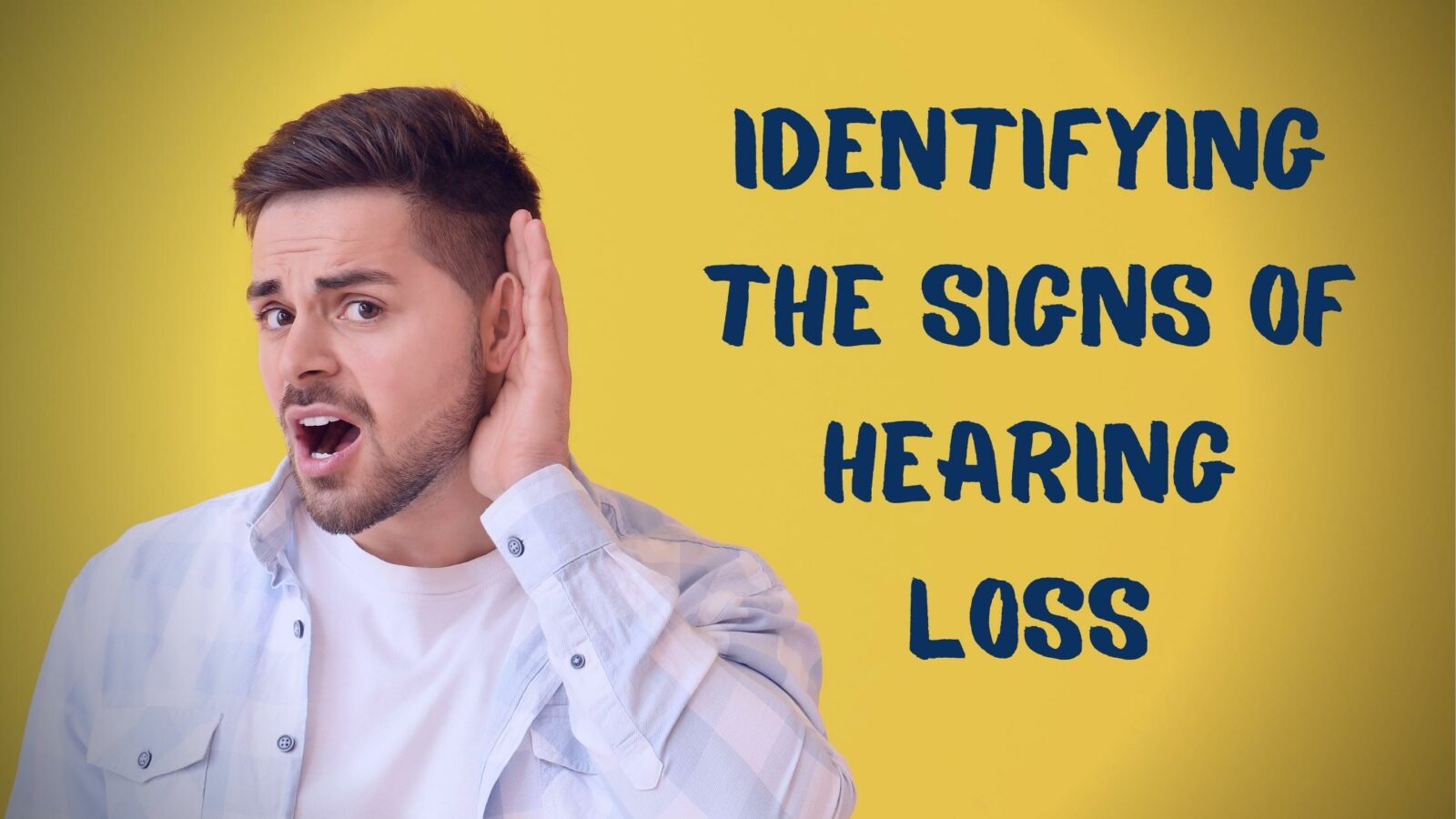While hearing loss is considered an invisible condition, this does not take away the severity of the condition or the importance of dealing with it. While hearing loss in most cases cannot be reversed, it can be treated in most cases with hearing aids. These amazing devices amplify the sounds around you so you can hear lost sounds all over again. Hearing aids have been found to reverse some of the negative side effects of hearing loss, such as a strain on relationships, chronic depression, self-isolation, cognitive decline and an increased risk for falls.
The first step is to identify this condition, which can be tricky. Hearing loss starts so slowly that many don’t realize they are dealing with it until they struggle to hear, even in the most ideal of listening environments. Here are a few tips to help you identify your hearing loss so that you can get the treatment you need as soon as possible.
You Ask People to Repeat Themselves
Everyone has to ask for clarification or for someone to repeat something they said every now and then. However, if you find yourself having to ask more often than not, then it’s a good idea to schedule a hearing exam. This can build tension in relationships and decrease people’s perception of your reliability in the workplace. Similarly, misunderstanding what people are saying to you can have a similar effect. I can not only cause confusion but can be dangerous in an emergency situation.
People Complain You Listen to Media Too Loudly
It’s very satisfying to listen to your favorite music at full volume, despite its potential to cause permanent hearing damage. However, most people are aware that they are doing so. If the volume does not seem excessive to you, but people around you complain, it’s time to take note of your hearing
You Can’t Hear Sounds that Others Can
Every now and then someone may comment on the sound of the wind rustling through the trees, or the birds chirping in the sky. This can be frustrating when you can’t hear the sound yourself. It may be tempting to pretend you hear the sound, but that can actually cause many more issues down the road. When you pretend to hear what people say in your day-to-day life, this can cause strain on relationships and misunderstandings. If you struggle to hear sounds others can, then it’s a clear sign that you may have hearing loss.
Ringing in the ears
Do you ever suffer from a ringing of the ears that seems to be coming from no external source? It may be extra prominent when there are no other sounds around you. If this happens every now and then it’s not a big deal but when you can’t escape the sound it can start to cause stress and even sleep issues. This ring is called tinnitus and is most often an issue that occurs in tandem with hearing loss. Researchers suspect that this has to do with feedback that the ears can send the brain when hearing damage occurs, though further studies are required on the subject.
Difficulty hearing amongst background noise
One of the earliest signs of hearing loss is trouble hearing in a noisy setting. It can be difficult for anyone to hear amongst noise but as hearing loss worsens, separating conversation from words can be a challenge. For a younger generation, even after a standard hearing test, this type of hearing loss often goes undiagnosed. This is because sometimes the damage occurs in the brain’s ability to process the sound instead of the ears. This is called a hidden hearing loss and requires special tests to diagnose.
Difficulty hearing when your back is to the speaker
You may be more reliant on visual cues in order to hear then you may even notice. If you find that you have trouble hearing someone speak from another room then it is a clear sign it’s time to have your hearing tested.
Don’t Delay!
The longer you let hearing loss go undiagnosed and untreated, the worse the side effects can become. If any of these go on for too many years, the side effects can be irreversible. Don’t let it get to that point. Hearing tests are painless and relatively quick. Have your hearing tested today before it becomes a larger problem than it needs to be.

